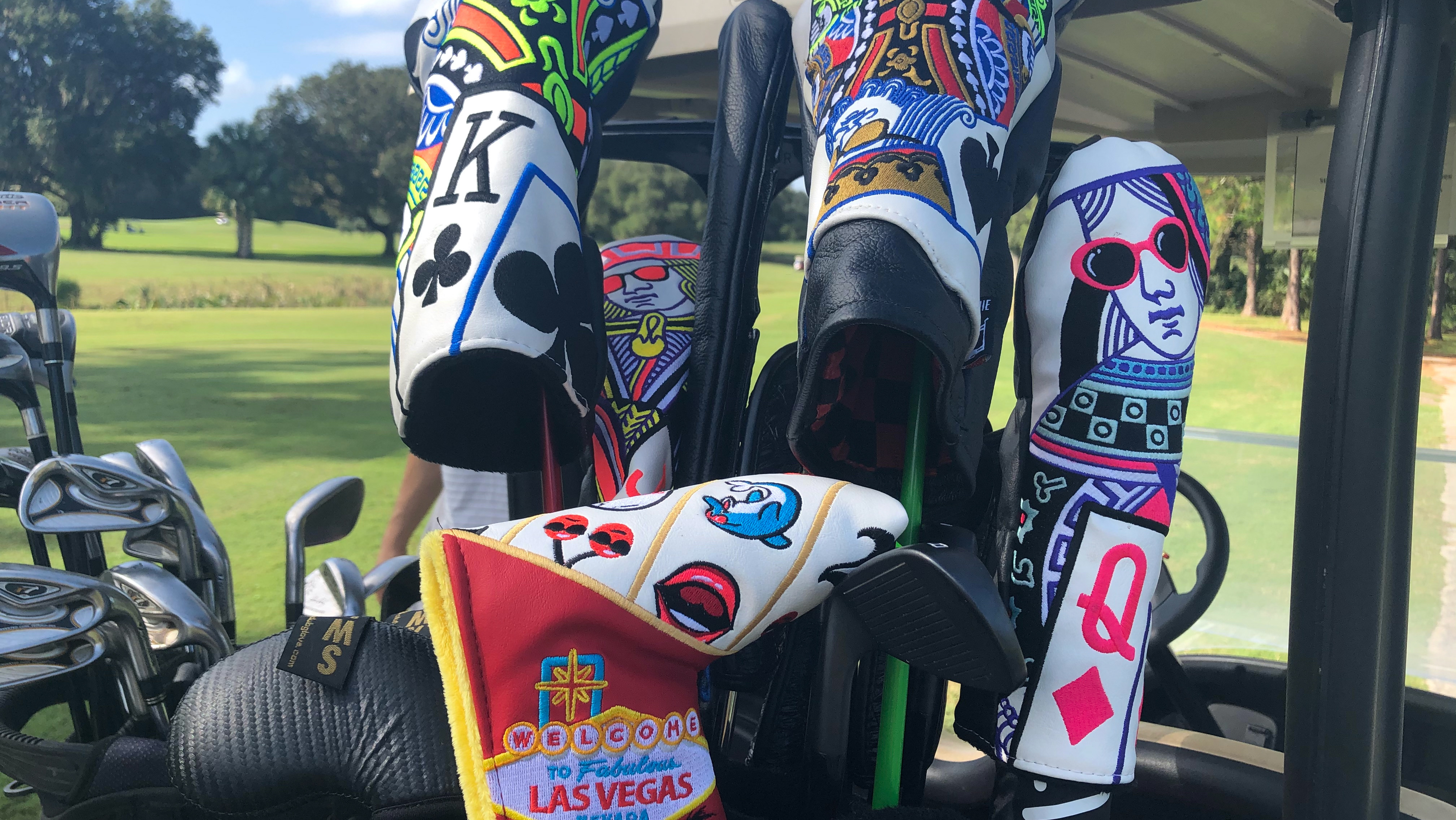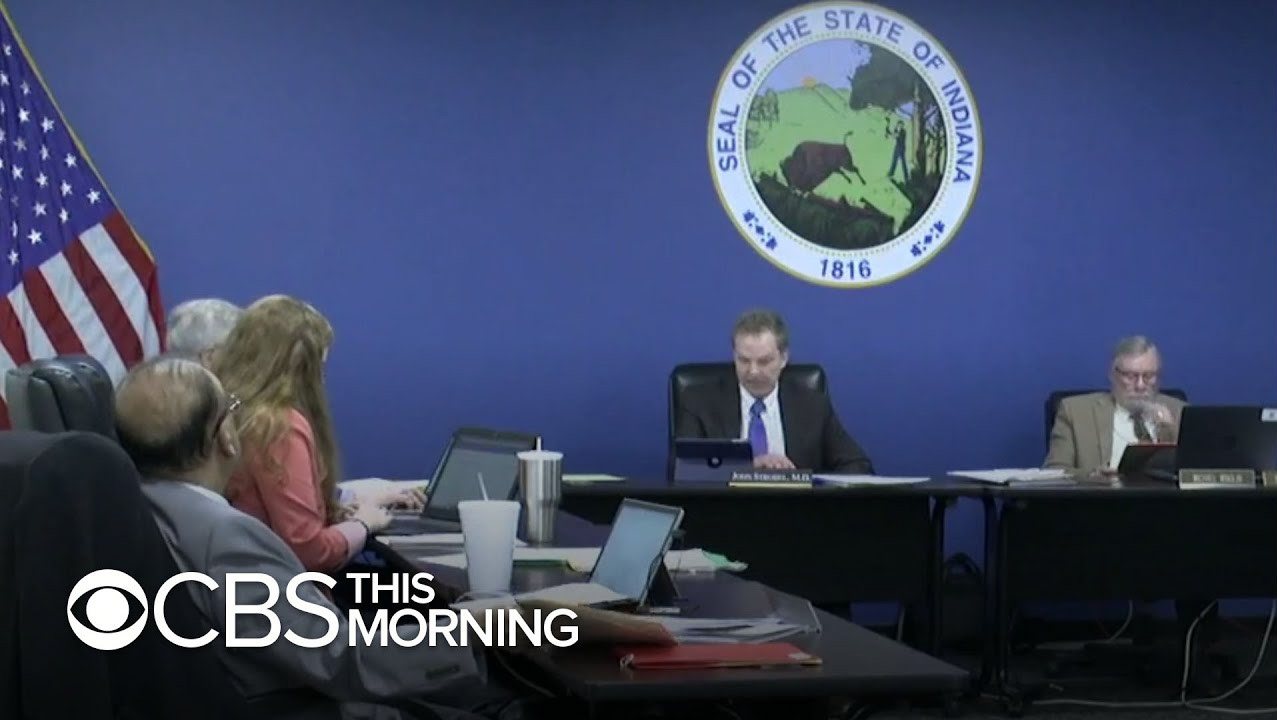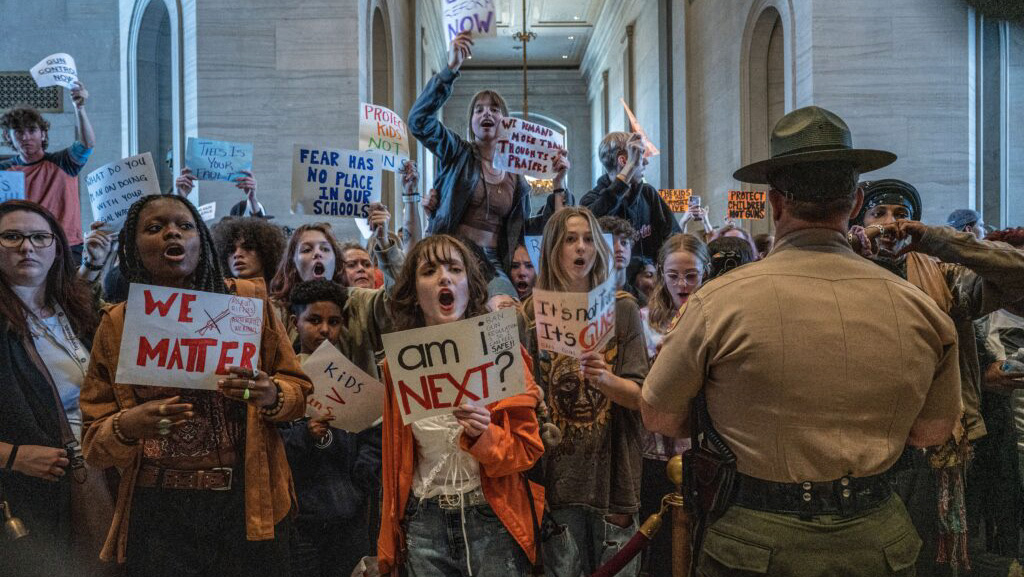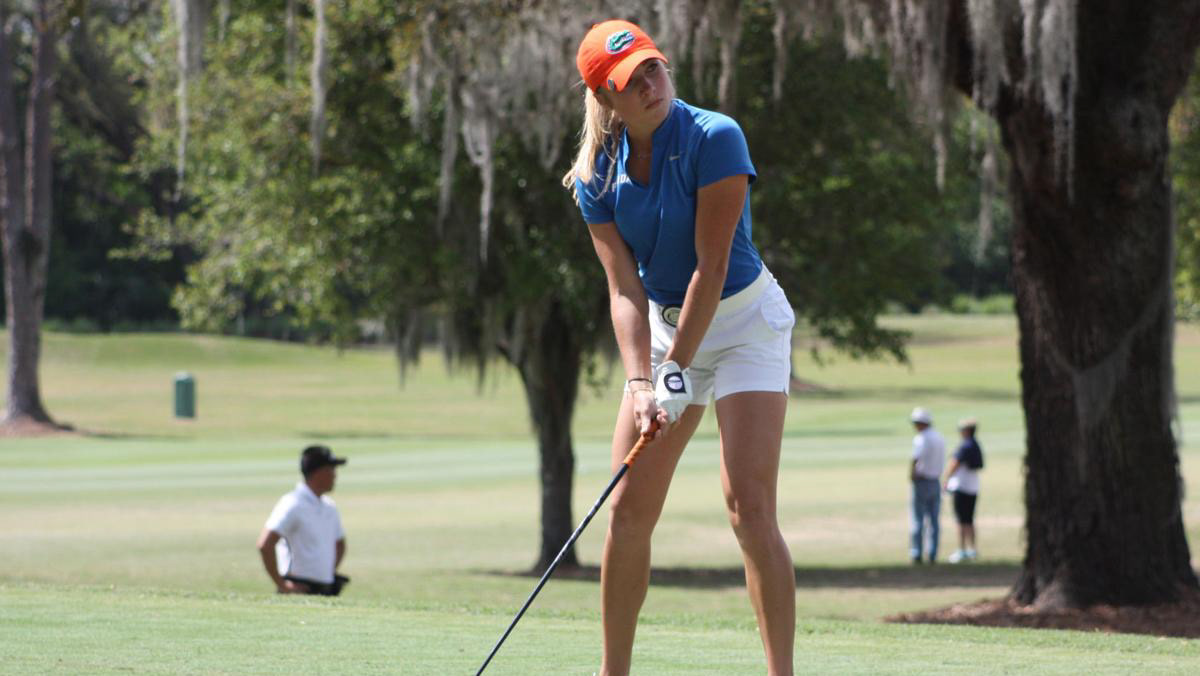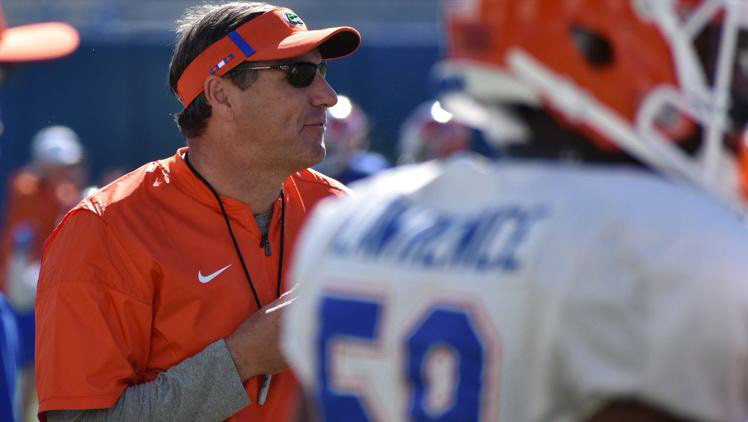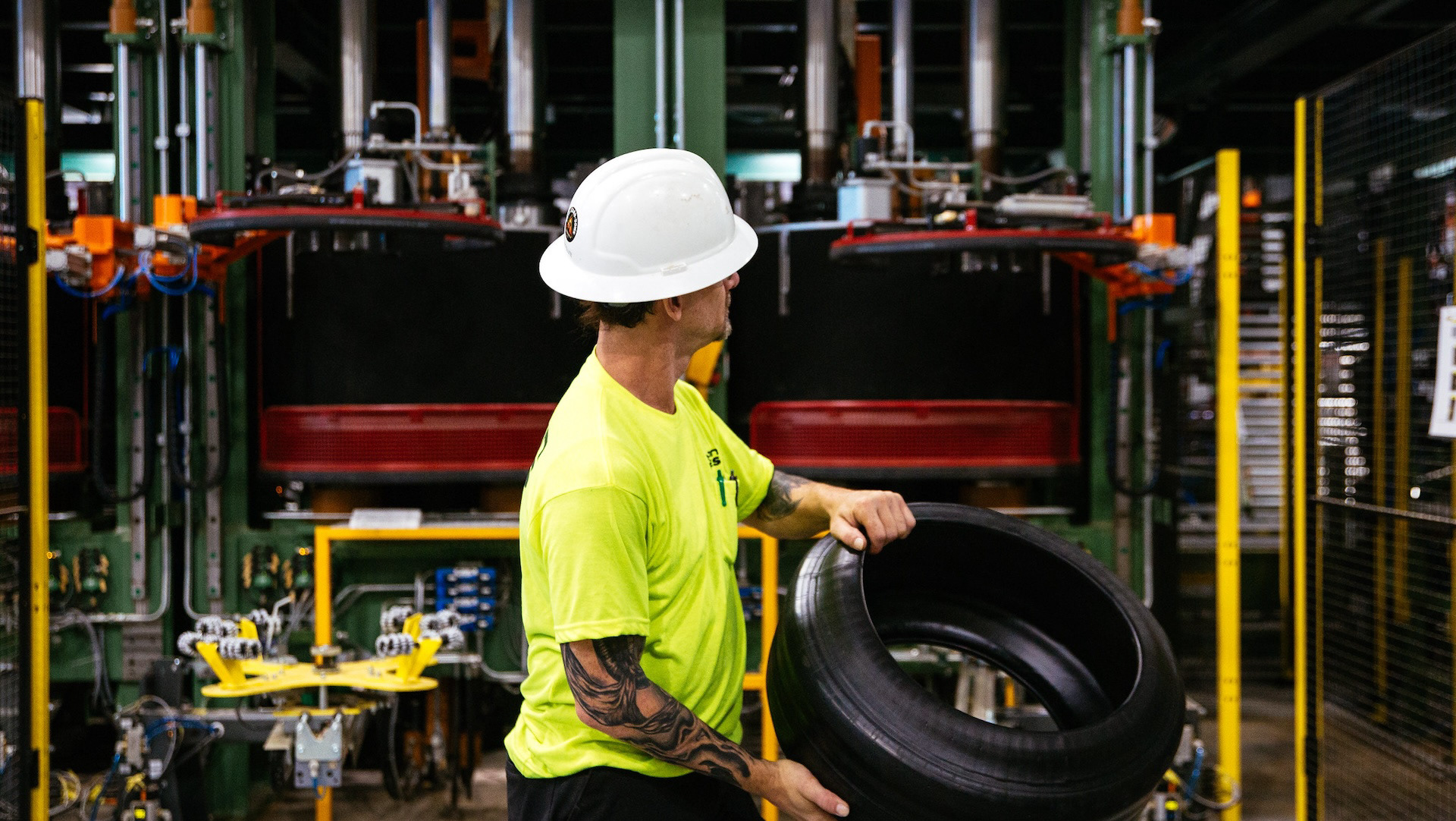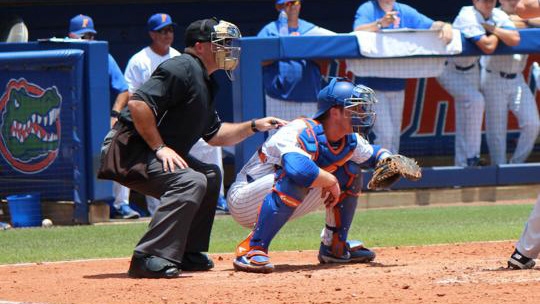Read the Award-Winning piece below or on the Alligator's Website.
A pair of dark brown eyes zips past your line of sight. Shoulder-length straight brown hair bounces like a child on a trampoline above her almond-colored complexion. The whistle blows and her face breaks into a warm, inviting smile that reminds you of home.
Lauren Evans, an outside back, just finished her final practice before the Florida Gators left Gainesville to take on the South Carolina Gamecocks at the Elite Eight in Columbus, South Carolina.
On the way home, she might stop at Chipotle. Her go-to meal there is a chicken bowl with extra cheese, occasionally tossing in guacamole.
After she goes home and cleans herself up, maybe she’ll take a trip to the mall or Forever 21, two of her favorite places to shop.
But after UF left for the Elite Eight in November 2017, her life of regular practices and shopping trips wouldn’t ever be the same.
Florida got to the venue a few days early to get acclimated to the climate and field.
But on the plane ride there, Lauren experienced some nausea and head sickness. I’ve just got airplane sickness, she thought. I’ll be fine.
At team dinner that night, everyone was allowed to order whatever they wanted. So, of course, Lauren ordered a magnificent steak dinner with mashed potatoes. But when they set the mouthwatering plate in front of her, she looked at it and thought, I don’t even want this right now. That was the first warning sign for her parents, Jerome and Allison.
“She’s always had a really healthy appetite,” Jerome said. “She eats…a lot. So, I kind of knew something was wrong.”
Lauren realized she hadn’t used the bathroom in a while. “Maybe (I was) just constipated,” she said, embarrassed. Lauren decided to bring the issue up to athletic trainer Connie Andrews and coach Becky Burleigh.
Andrews and Burleigh told her she should drink more water and eat a banana to attempt to get things flowing again.
By the time practice came around the next morning, Lauren still hadn’t used the bathroom, and at this point, she was just trying to keep her cool.
She told Andrews she couldn’t practice. “My teammates were like ‘Really? You’re not practicing because you’re constipated? C’mon, this is D-I,’” Lauren said.
The team was in Columbia for Thanksgiving because the game was a day after, so it celebrated the holiday in the city with a family dinner that Thursday.
Lauren didn’t eat.
She sat out of the Elite Eight matchup the next day, a contest in which Florida lost 2-0, ending its season.
The team hustled home to make it for the UF-FSU football game on Nov. 26. Lauren met up with her parents to attend but left at halftime, much to the puzzlement of her father.
Since Jerome and Allison couldn’t be with Lauren on Thanksgiving, they decided to bring the young soccer player all the leftovers, so they could celebrate together at their Gainesville condo. The parents fixed their daughter a big plate of food, of which she ate about two bites, complaining her throat was too swollen to swallow.
Both her team doctor and her parents advised her to go to the infirmary.
Lauren got into the infirmary on Tuesday, Nov. 28, and was given an IV for fluids and her blood was tested for mono.
The doctors at the infirmary didn’t find mono.
“Something doesn’t look right in your blood,” doctors explained to her. They tested another sample before about five doctors rushed in and advised she go to the hospital immediately.
When she got to the waiting room, she turned to teammate Briana Solis and said, “What if I have cancer?”
Lauren called her mother and told her she was going to the emergency room, but wasn’t exactly sure why.
While waiting for her mother to arrive for about an hour, the doctors arrived with a question for Lauren.
“Do you want us to tell you now, or do you want to wait for a family member to be here?”
Lauren elected to wait for her mother to arrive before she got the diagnosis.
“What if I have cancer?”
- Lauren Evans
While Allison was still about 45 minutes away, Solis called and told her the doctors asked Lauren if she wanted to wait for her family to receive the diagnosis, and Allison’s level of worry ballooned.
It takes about two-and-a-half hours to reach Gainesville from their home near Tampa, but Allison did it in roughly an hour and ten minutes.
Once at the E.R., she and her daughter anxiously awaited the doctors and a diagnosis.
In the room sat Lauren, Allison, Solis and Andrews. Jerome initially decided not to make the trip because he assumed the diagnosis would just be mono or strep or a similar illness.
“I was kinda like, ‘You’re babying her, just leave her alone,” Jerome said. “It was totally unexpected.”
A half hour later, surrounded by pale yellow drywall, two curtains, a small yellow-green armchair, a teammate, her athletic trainer and her mother in a cramped cubicle, Lauren heard the unfathomable uttered by her doctor in the Shands Regional Hospital Emergency Room.
“You have leukemia.”
There was no warm greeting. No moving to his office. No delay of any kind.
The athletic trainer couldn’t handle the news and walked out emotional.
Lauren was in denial.
“It can’t be cancer,” she said. “It’s just a disease… It didn’t really feel real until the next morning.”
She didn’t know what to think. What does it mean? Would she ever play soccer again?
Was she even going to live?
***
Nobody said a word. Nobody knew what to say. Is there even a right thing to say?
Allison said she believed the silence alarmed Lauren a bit. “Nobody reacted so she thought maybe she heard it wrong,” Allison said.
Lauren was diagnosed with acute myeloid leukemia (AML). “Acute” refers to the fact that it can progress rapidly if not treated and “myeloid” is indicative of where the cancer begins – which is in bone marrow.
If not treated quickly, AML will kill you.
AML has a five-year survival rate of 26 percent. Just 26 percent of patients with it survive beyond five years, according to Healthline.
Lauren was incredulous, still in denial because no one in her family had ever been diagnosed with cancer.
“It’s just one of those things where, you know, you hear cancer all the time. Until it happens to somebody that you’re close to…” Allison choked up.
Lauren was sent to the ICU because her breathing levels were plummeting. The rapidly-increasing white blood cells began to spread to her chest and lungs. Doctors connected her to an oxygen tank and cranked it up to the highest setting. She still struggled to breathe.
“(Chemo) almost became like my friend, like I wanted it.”
- Lauren Evans
The only option left was to start chemotherapy as soon as possible.
For Lauren, an 18-year-old who knew little about her disease, chemotherapy is the most fear-inducing, treacherous word out there.
Her view of the word soon evolved.
“It almost became like my friend,” she said, “like I wanted it.”
Lauren discovered chemo relieved the agony she was experiencing. It helped her breathe again and took away some of cancer’s costly effects.
The treatment had one lasting problem though.
Her hair.
When Lauren woke up with hair on her pillow, her level of stress swelled until, on Christmas Eve, it popped.
She went to the bathroom and just yanked it all out. And when it was out, she immediately felt better. But she couldn’t wait for it to grow back.
Her hair wasn’t the only thing distorting her appearance.
She lost her eyebrows and eyelashes, and her face puffed too.
There was more damage coming.
***
Lauren committed to play soccer at the University of Florida much, much later than most high school soccer athletes.
Of the few that do go D-I for soccer, the majority usually decide when they’re in their sophomore year or, at the latest, their junior year. Lauren instead bet on herself and waited Florida out because the Gators didn’t offer her initially. She committed just before her senior year.
Burleigh said the outside back had better offers than UF but declined them, which exemplified her lack of egoism.
“To me, it just showed that she really, really wanted to be a Gator,” Burleigh said.
Besides possessing exceptional athleticism and talent, Burleigh revealed that one of the main reasons behind Lauren’s recruitment was her motor.
She’s incredibly energetic. And not the type of energetic that makes you think, Man, this girl never shuts up.
No, it’s more of the active, enthusiastic energy that makes you smile.
So, when she was diagnosed with leukemia, that motor began to sputter a bit.
It was tough to handle. But not impossible.
“Initially, she had so many questions,” Allison explained. “She’s asking me and she’s asking her dad.
“We didn’t know!”
Especially when their daughter would ask what bad days were going to feel like.
***
Doctors at Shands had been injecting Lauren’s back with chemotherapy to try and get some of the leukemia out of the bone marrow hiding in her spine.
Then Jan. 20 arrived.
Lauren woke up with a fever. A really, really powerful fever. It was so powerful that she blacked out – she doesn’t remember it.
“Then I woke up…and I couldn’t move my legs,” Lauren said. “I was paralyzed.”
Her doctors told her it was because her back became irritated by the chemotherapy shots and her nerves were shutting down.
Days passed, then weeks. She needed help getting in and out of bed. She couldn’t walk. She couldn’t use the bathroom by herself.
“On one side, everything was going as well as they could have hoped for because she did go into remission really quickly after her first round of chemo,” Allison said.
“But on the other side, she had all these other complications and it was hard to celebrate the high of the remission because you’re still coping with all of these other unknowns.”
And the most frustrating part of it all was the fact that her doctors didn’t know if her leg movement was going to come back.
Lauren was trying to stay positive, but how can you stay positive when your legs have been taken from you, and you have no idea if they’ll ever return? Everything in her sport involves her legs.
“I almost think she’d rather be able to walk,” Jerome said, “and still have cancer (rather than be paralyzed without it).”
Lauren began to look up videos on Ryan Shazier.
Shazier was originally a UF commit before Urban Meyer left the program, and he is currently a linebacker for the Pittsburgh Steelers. But he is on the PUP (physically unable to perform) list because of a spinal injury he sustained on a helmet-to-helmet tackle in 2017.
The hit left him paralyzed from the waist down, effectively ending his career.
However, Shazier vowed to make a return to football and has begun walking again. He walked to the podium at the 2018 NFL Draft on April 26.
Lauren used Shazier as a source of inspiration to give her hope that she too would be able to walk again.
But still, his ability to help the soccer player who’d been robbed of her legs was limited.
“I almost think she’d rather be able to walk and still have cancer (rather than be paralyzed without it).”
- Jerome Evans
“How is this gonna be a story if I can’t finish it? Like how am I gonna play soccer?” Lauren thought. “Like what am I supposed to say? I beat cancer but never played soccer again?”
It wasn’t really the physical pain that began to break her down, but more the mental and psychological detriment.
“It was things like Friday nights, Saturday nights, my teammates would be going out to the club and parties, and I’d go on Snapchat and see everybody having fun.” Lauren said with a sad smile. “I kinda felt like I was left out or pushed aside…like isolated or disconnected.”
Teammate Deanne Rose said Lauren got to go out on a visit away from the hospital once a month, but sometimes it didn’t help – especially when Lauren was confined to a wheelchair.
“Being in a wheelchair and having people stare at you or going to breakfast or the movies,” Rose said, “we didn’t realize how hard it was for people in a wheelchair to get through doors.”
Then one day, Lauren woke up and could wiggle her toes again. Although it marked a tiny step on a mountain of journey, it showed that signals were still being sent from her brain to her toes.
“It might take two months, it might take two years,” Jerome said. “But it’s eventually going to come back.”
"We didn’t realize how hard it was for people in a wheelchair to get through doors.”
- Deanne Rose
Lauren had hope again, something she had to search deep inside to find during the months of January and February.
Throughout the entire process, Lauren also looked to a few other foundations of support: her team, other athletes and her faith.
Someone on her team visited her every day possible. Every. Single. Day.
Most of the time, it was either Solis or Rose.
If it wasn’t one of them, it’d be another teammate, a coach, Andrews or an athlete from a different sport.
“Gators take care of Gators, that’s what we always say,” Lauren remarked.
She also looked up a Bible verse or a quote by another athlete every single day. Something to try and remind her that she’s not alone, and that other people have been through this and came back from it.
One quote in particular stuck out to her: “God gives His toughest battles to His toughest warriors.”
She was always worried, but she found comfort in this particular quote and made it something she chose to live by.
“I felt like it was all happening for a reason,” Lauren said.
“Gators take care of Gators, that’s what we always say."
- Lauren Evans
Allison corroborated that notion.
“She felt that there was a reason for this, and that it wouldn’t happen to her if not for good reason and not for a bigger plan.”
In April, the doctors at Shands told her she was in her last month of treatment.
When you receive chemotherapy, you receive it in rounds, and the doctors hoped she would need four. When a patient finishes a round, they sit, confined to a hospital bed, waiting for their white blood cell counts to recover because you don’t have any immunity when they’re low.
Even though there’s no treatment going on, Lauren was stuck at Shands until her bone marrow regenerated.
The doctors tested her blood on April 23 and the Evans were hoping to get same-day results.
They didn’t. The family went to bed bearing a cloud of burden and anxiety.
On April 24, that cloud was dissolved.
“All my doctors came running in my room and I thought it was like something bad was happening.”
Instead it was, as Lauren put it, “The best day. It was like Christmas.”
Her doctors had a message for her.
“You’re cancer-free.”
***
On June 14, Lauren rang the cancer bell, which is symbolic at Shands Hospital. It’s fashioned from an oxygen tank, and patients ring it at the end of their treatments, signifying their life after cancer.
But Lauren’s work wasn’t done. It isn’t done.
She’s started therapy, she learned how to walk again and she’s active. But she still needs to start running again, start getting her form down and get stronger.
But she feels that by the end of October, she’ll be ready to rejoin practices again.
What’s the goal this season?
“Start little and practice with the team and play in at least two games.”
Regardless if Lauren is ready in time before the season ends, her impact on the team has been noticeable, according to Burleigh.
“One thing as athletes is we do take things for granted,” Burleigh said. “We don’t realize how quickly things can be taken from us… For her to go in and fight like she did…not just physically but emotionally, was a huge inspiration to our team.
“And still continues to be.”
According to Burleigh, Lauren wasn’t the only role model the team drew inspiration from. No, not at all.
“(Allison and Jerome) were inspirational to our players as well, not just Lauren,” Burleigh said. “I mean, it’s your only child and, I don’t know, I think the poise that they handled it with, the positivity, just… Incredible. They’ve taught me so much just what good parenting looks like.”
***
A shimmering, dry wind carries over Donald R. Dizney Stadium as the day fades into night. This is where the UF soccer team will begin their regular-season campaign against Washington on Aug. 17.
Except it’ll be without one notable face patrolling the pitch.
Soon, very soon, though, Lauren will be back out there. The girl with the dark brown eyes, almond-colored skin and, now, wavy short hair, will be back.
Roughly eight months ago, she didn’t know if she’d ever walk again.
Now, she’s only about three months away from taking her first steps back on the pitch.
Those interviewed for this story described her as energetic, positively resilient, crazy and larger-than-life, amongst other descriptions.
But when you ask her to describe herself, she gives the best answer.
“My name is Lauren Evans. I play soccer for UF. I am a cancer survivor.
“A warrior.”
Note from the writer and the Evans family:
Although Lauren defeated cancer, she was lucky. Doctors caught it early and it didn’t require a bone marrow transplant, something most AML patients need.
There’s a program called Be the Match that can connect bone marrow donors with needy patients.
“There’s a lot of kids that were on my floor that needed someone’s bone marrow and people don’t really know about the program,” Lauren said. “But it’s really simple: You just swab your mouth and if you match someone that needs it, they’ll call you and ask you to donate.”
Allison concurred that Be the Match is a good program for those who want to help, and named Stop Children’s Cancer in Gainesville as a comparable local option.
If you feel so compelled, the family urges you to donate to an organization that helps fight cancer or get involved in some way. Even if only one person decides to help, that’s one more than the organization had yesterday.
Chris O’Brien is a sports writer. You can follow him on Twitter @THEChrisOB and contact him at cobrien@alligator.org.

